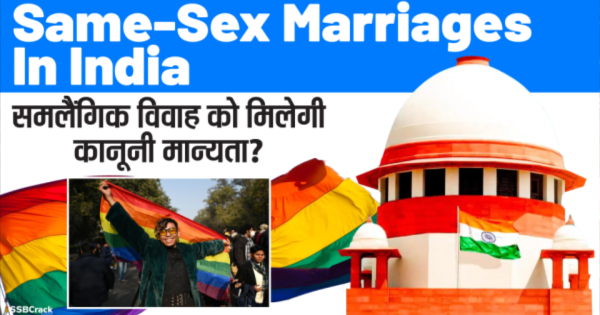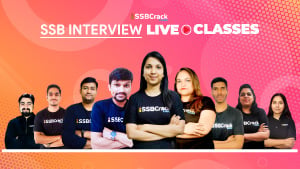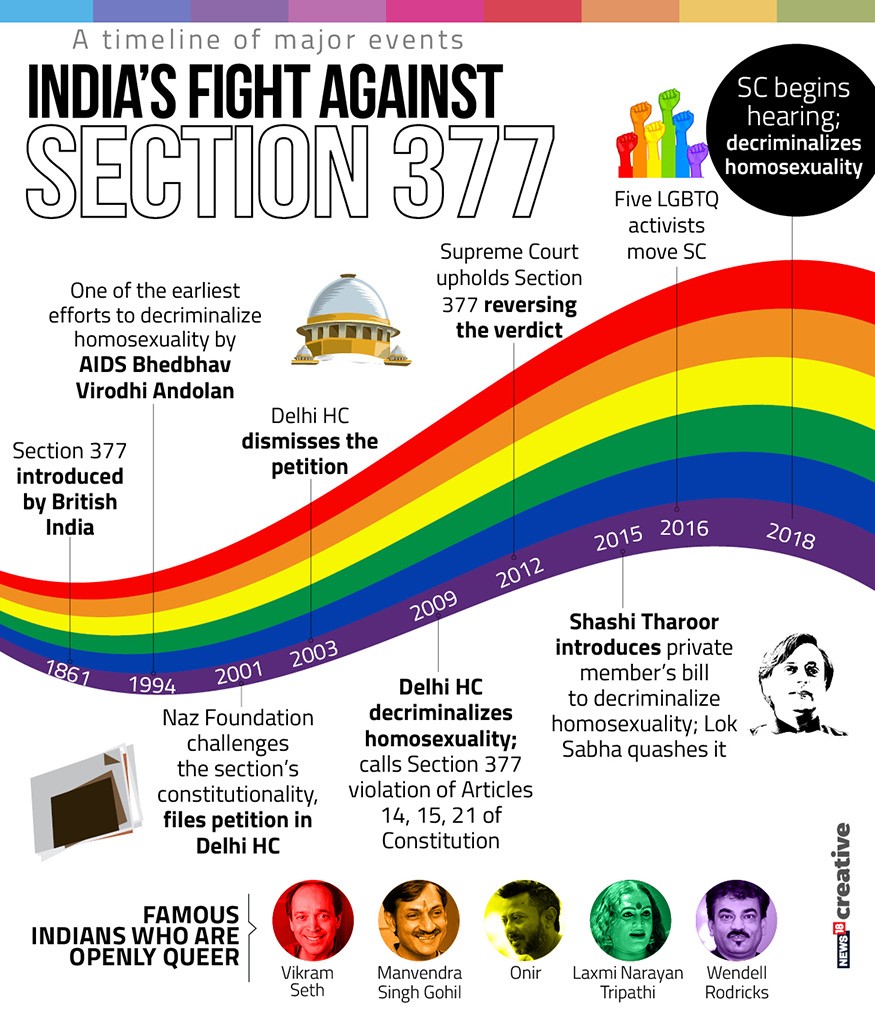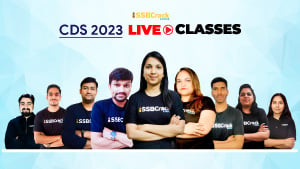The Supreme Court recently submitted a group of petitions seeking legal recognition of same-sex weddings to a Constitution Bench. The petitions have been rejected by the Union administration. Marriage, according to Law Minister Kiren, is a matter of policy that should be decided only by Parliament and the executive. The legal acknowledgment of a marriage between two people of the same sex is known as same-sex marriage. It provides same-sex couples with the same legal and social recognition, rights, and privileges as marriage, such as property rights, inheritance rights, and the freedom to make medical decisions for each other.
Why In The News?
- The Supreme Court Is Hearing On A Bunch Of At Least 15 Petitions Regarding The Demand For Marriage Equality In India. Centre Provided An Affidavit To The SC Seeking To Admit All The States As Parties In The Matter.
- Stating That The Case Requires An Assessment Of State Rules And Customs Of Different Sections Of Society. Centre Has Raised A Preliminary Objection To The Hearing And Said The Parliament Is The Only Constitutionally Permissible Forum To Decide On The Creation Of A New Social Relationship.
- Senior Lawyer Mukul Rohatgi, Appearing For The Petitioners, Argued That The State’s Recognition Of The Union Of The Homosexual Couple Will Reduce The Stigma Surrounding Homosexuality.
- He Also Said The LGBTQIA+ Community, Being Equal Citizens Under The Constitution, Should Receive The Same Benefits From The Registration Of Marriage As A Heterosexual Couple.
NALSA Vs Union Of India
- Months After A Two-judge Bench Of The SC In ‘Suresh Kaushal V Union Of India’ Upheld The Constitutional Validity Of Section 377 Of The Indian Penal Code, Another Bench In April 2014 Affirmed The Constitutional Rights Of Transgender Persons Under Articles 14, 15, 19 And 21 Of The Constitution.
- The Court Agreed With The Same Arguments It Rejected In Suresh Kaushal. The Court Upheld The Right Of Transgender Persons To Decide Their Gender And Directed The Centre And State Governments To Grant Legal Recognition To Their Gender Identities, Such As Male, Female, Or The Third Gender.
KS Puttaswamy Vs Union Of India
- In 2017, A Nine-judge Bench Of The SC Unanimously Recognised The Right To Privacy As A Fundamental Right Under The Constitution. In Doing So, The Verdict Overruled A “Discordant Note Which Directly Bears Upon The Evolution Of The Constitutional Jurisprudence On The Right To Privacy”.
- “Sexual Orientation Is An Essential Component Of Identity. Equal Protection Demands Protection Of The Identity Of Every Individual Without Discrimination,” A Concurring Opinion By Justice DY Chandrachud Stated.
Shafin Jahan Vs Union of India
- The SC In March 2018 Set Aside A Kerala High Court Judgment That Annulled The Marriage Of A 24-year-old Woman Who Converted To Islam And Married A Man Of Her Choice. The Ruling Recognised The Right To Choose One’s Partner As A Facet Of The Fundamental Right To Liberty And Dignity.
- Supreme Court Observed That ‘The Choice Of A Partner Whether Within Or Outside Marriage Lies Within The Exclusive Domain Of Everyone. Intimacies Of Marriage Lie Within A Core Zone Of Privacy, Which Is Inviolable’.
Shakti Vahini Vs Union Of India
- A 3 Judge Bench On The SC In March 2018 Issued Directives To Prevent Honour Killings At The Behest Of Khap Panchayats And Protect Persons Who Marry Without The Approval Of The Panchayats. In The Ruling, The Court Recognised The Right To Choose A Life Partner As A Fundamental Right.
- Supreme Court Observed “When Two Adults Consensually Choose Each Other As Life Partners, It Is A Manifestation Of Their Choice Which Is Recognized Under Articles 19 And 21 Of The Constitution”.
Navtej Johar Vs Union Of India
- In August 2018, A 5 Judge Constitution Bench Struck Down IPC Section 377 To The Extent That It Criminalized Homosexuality. The ‘Navtej’ Ruling Essentially Said That The LGBTQ Community Are Equal Citizens And Underlined That There Cannot Be Discrimination In Law Based On Sexual Orientation And Gender.
Deepika Singh Vs Central Administrative Tribunal
- The SC In August Last Year Decided In Favour Of A Woman Who Was Denied Maternity Leave For Her First Biological Child On The Ground That She Had Already Availed The Benefit For Her Two Non-biological Children.
- The Ruling Recognised “Atypical” Families, Including Queer Marriages, Which Could Not Be Confined To Traditional Parenting Roles.
To crack the SSB Interview and join the Indian Army as an Officer, You can join our SSB interview live classes batch and we recommend you to Enroll SSB INTERVIEW ONLINE COURSE. Trusted by thousands of defence aspirants.
Also Read:
- What Is China Plus One? SSB Interview Lecturette Topic 2023
- India-Maldives Relations: SSB Interview Lecturette Topic 2023
- India-Bangladesh Relations: SSB Interview Lecturette Topic 2023
- India-Japan Relation: SSB Interview Lecturette Topic 2023
- Geopolitical Importance Of The Indian Ocean: SSB Interview Lecturette Topic 2023
- All About Paris Club: SSB Interview Lecturette Topic
- PM Narendra Modi Has Been Named The Most Popular Leader In The World
- Hindenburg Report On Adani – Here’s What You Need To Know
- India At WEF Davos Summit 2023: Here Are 10 Key Highlights
- Pakistan Economic Crisis 2023: SSB Interview Topic [Fully Explained]
- Joshimath Crisis: What Does “Land Subsidence” Mean, And Why Does It Happen?
- Top 10 Animal Conservation Projects In India [MUST WATCH]
- What Is Shanghai Cooperation Organisation (SCO) Summit 2022? [Fully Explained]
- 20 SSB Interview Questions On Russia Ukraine Crisis
- What Is The (India-Israel-UAE-USA) I2U2 Summit? [Fully Explained]
- What Is International North-South Transport Corridor (INSTC)?
- What Is Sri Lankan Crisis? [Fully Explained]
- What Is The BIMSTEC Grouping And How Is It Significant? [EXPLAINED]
- What Is The Places Of Worship (Special Provisions) Act, 1991? [Explained]
- What Is Bodo Accord | SSB Interview Notes [Fully Explained]
- What Is AFSPA: Armed Forces (Special Powers) Act?
- What Is G20 Or Group Of Twenty Countries?
- What Is AFSPA: Armed Forces (Special Powers) Act?
- What Is The Financial Action Task Force (FATF)? [Fully Explained]
- What Is Quadrilateral Security Dialogue (QUAD)?
- Difference Between NATO Vs Russia [Expained]
- What Is United Nations Security Council (UNSC) [Explained]
- Everything You Need To Know About SAARC: South Asian Association For Regional Cooperation
- All About Russia Ukraine War: SSB Interview Topic [Fully Explained]










